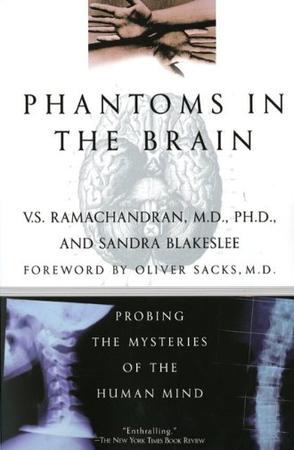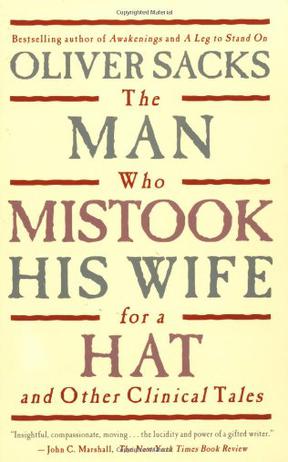-

Phantoms in the Brain
Neuroscientist V.S. Ramachandran is internationally renowned for uncovering answers to the deep and quirky questions of human nature that few scientists have dared to address. His bold insights about the brain are matched only by the stunning simplicity of his experiments -- using such low-tech tools as cotton swabs, glasses of water and dime-store mirrors. In Phantoms in the Brain, Dr. Ramachandran recounts how his work with patients who have bizarre neurological disorders has shed new light on the deep architecture of the brain, and what these findings tell us about who we are, how we construct our body image, why we laugh or become depressed, why we may believe in God, how we make decisions, deceive ourselves and dream, perhaps even why we're so clever at philosophy, music and art. Some of his most notable cases: A woman paralyzed on the left side of her body who believes she is lifting a tray of drinks with both hands offers a unique opportunity to test Freud's theory of denial. A man who insists he is talking with God challenges us to ask: Could we be "wired" for religious experience? A woman who hallucinates cartoon characters illustrates how, in a sense, we are all hallucinating, all the time. Dr. Ramachandran's inspired medical detective work pushes the boundaries of medicine's last great frontier -- the human mind -- yielding new and provocative insights into the "big questions" about consciousness and the self. -

Man Who Mistook His Wife for a Hat
"The Man Who Mistook His Wife for a Hat" is populated by a cast as strange as that of the most fantastic fiction. The subject of this strange and wonderful book is what happens when things go wrong with parts of the brain most of us don't know exist ...Dr Sacks shows the awesome powers of our mind and just how delicately balanced they have to be' - "Sunday Times". 'Who is this book for? Who is it not for? It is for everybody who has felt from time to time that certain twinge of self-identity and sensed how easily, at any moment, one might lose it' - "The Times". 'This is, in the best sense, a serious book. It is, indeed, a wonderful book, by which I mean not only that it is excellent (which it is) but also that it is full of wonder, wonders and wondering. He brings to these often unhappy people understanding, sympathy and respect. Sacks is always learning from his patients, marvelling at them, widening his own understanding and ours' - "Punch". -

The Man Who Mistook His Wife for A Hat
In his most extraordinary book, "one of the great clinical writers of the 20th century" (The New York Times) recounts the case histories of patients lost in the bizarre, apparently inescapable world of neurological disorders. Oliver Sacks's The Man Who Mistook His Wife for a Hat tells the stories of individuals afflicted with fantastic perceptual and intellectual aberrations: patients who have lost their memories and with them the greater part of their pasts; who are no longer able to recognize people and common objects; who are stricken with violent tics and grimaces or who shout involuntary obscenities; whose limbs have become alien; who have been dismissed as retarded yet are gifted with uncanny artistic or mathematical talents. If inconceivably strange, these brilliant tales remain, in Dr. Sacks's splendid and sympathetic telling, deeply human. They are studies of life struggling against incredible adversity, and they enable us to enter the world of the neurologically impaired, to imagine with our hearts what it must be to live and feel as they do. A great healer, Sacks never loses sight of medicine's ultimate responsibility: "the suffering, afflicted, fighting human subject."